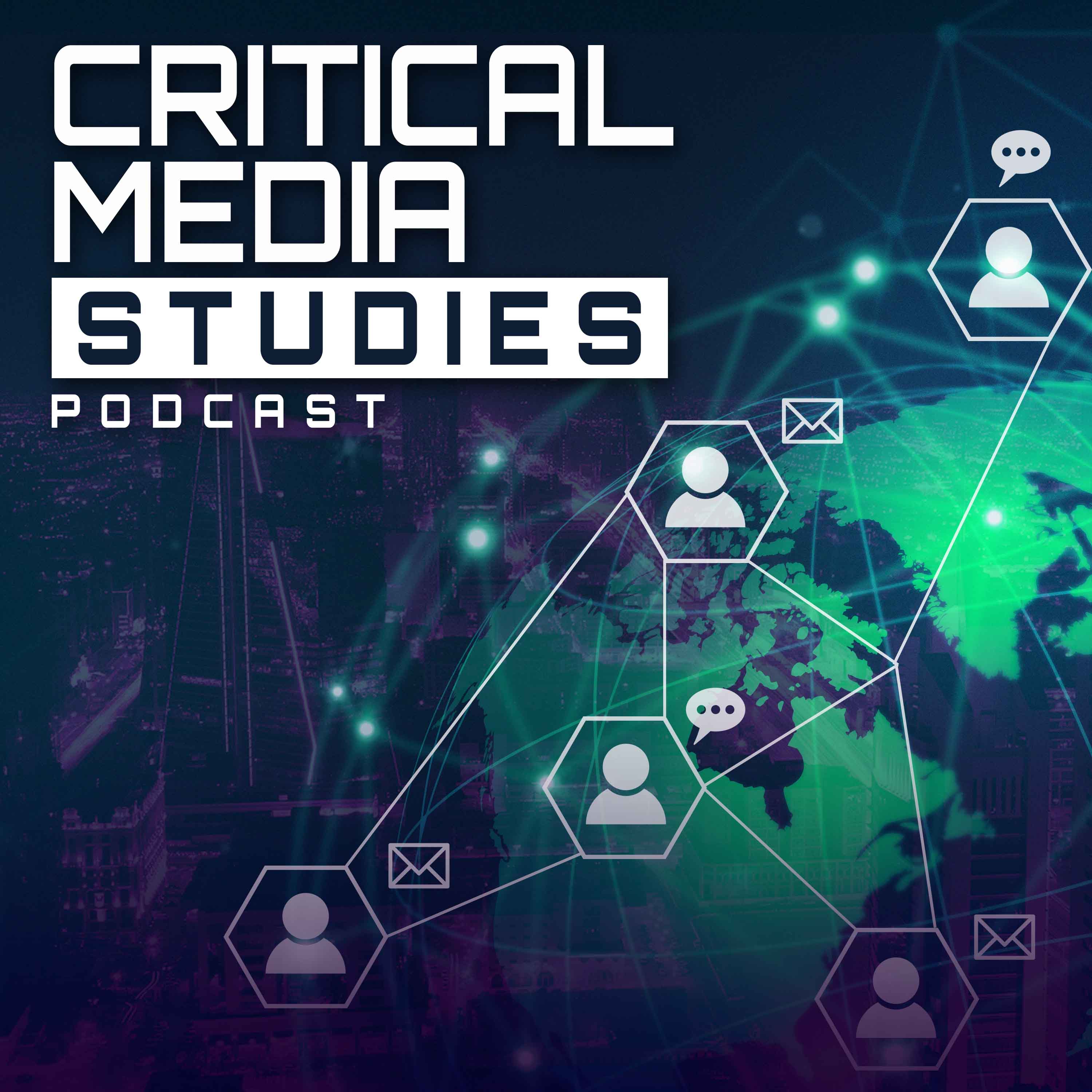

Critical Media Studies
Michael Repici
The Critical Media Studies podcast discusses the interplay of technology and culture from an academic perspective. In each episode we consider the work of a prominent thinker in the field of critical media studies and discuss the implications of their work in relation to other thinkers and in light of current social contexts.
Episodes
Mentioned books

Oct 13, 2023 • 1h 2min
Denise Lu - Want to Enjoy Music More? Stop Streaming it.
In this episode Barry and Mike discuss Denise Lu’s recent New York Times editorial, “Want to Enjoy Music More? Stop Streaming It. Build a real music collection. Reintroduce intimacy to the songs you care about.” They attempt to re-frame the article in CMS friendly terms and end up with an extended investigation of the nature of intimacy and the archive.

Sep 29, 2023 • 42min
The 50th episode- a look back.
On the occasions of their 50th episode, Barry and Mike get reflective. The discuss the purpose or intent of the show, their favorite episodes, what they’d do over, and the biggest surprises that they’ve encountered so far.

Sep 15, 2023 • 1h 11min
John Law – Notes on the Theory of the Actor Network: Ordering, Strategy, and Heterogeneity.
In this episode Barry and Mike discussion John Law’s 1992 essay, “Notes on the Theory of the Actor Network: Ordering, Strategy, and Heterogeneity” and in particular Law’s concepts of network composition, punctualisation, and translation.

Sep 1, 2023 • 1h 8min
Bruno Latour - On Actor-Network Theory: A few clarifications
Barry and Mike discuss Bruno Latour’s essay, “On Actor-Network Theory: A few clarifications.” They work through his key terms in an attempt to better understand the new meanings he ascribes to actors and networks and what this theory allows us to do with media theory.

4 snips
Aug 18, 2023 • 1h 8min
Jacques Attali - Noise
The hosts dive into Jacques Attali's intriguing analysis of music's role in society, exploring the impacts of recorded music and background noise. They compare the philosophies of sound and technology, revealing how these affect the music landscape. Live performances are reshaped by recorded music, raising questions about the value of authentic experiences. The dialogue also navigates the complexities of music consumption, the haunting power of background music, and its influence on social dynamics, transforming deep cultural experiences into mere background noise.

Aug 4, 2023 • 1h 5min
Glenn Gould - The Prospects of Recording
In this episode Barry and Mike talk about Glenn Gould’s essay “The Prospects of Recording.” They focus on two central arguments from the essay – how technology creates the new, empowered, listener and the significance of background music.

Jul 21, 2023 • 1h 15min
Andre Bazin's New Media
In this episode Barry and Mike discuss Andre Bazin’s collection of essays on new media and how the evolution of television and technological development impact how we see film. Specifically, they discuss how “Industrial Art” challenges traditional ideas about aesthetics.

Jul 7, 2023 • 1h 9min
Derrida - Signature, Event, Context
In this episode Barry and Mike discuss Derrida's 1972 talk turned essay, "Signature, Event, Context." The episode engages his critique of Plato and Austin and turns to the relevance of his findings as they relate to AI. The discussion ends on a thought provoking read of human connection and the authenticity of language. They wonder, is AI a threat, or does it highlight our embarrassment over our inability to generate authentic language in the quest for human connection?

Jun 23, 2023 • 59min
Adorno - Opera and the Long-Playing Record
At Mike's insistence, the guys return for a second consecutive Adorno episode. "Opera and the Long-Playing Record" sees Adorno pivot, celebrating the advances and opportunities that the vinyl record affords music beyond archival purposes. Here, rather than denegrating vinyl as being a cheap proxy container for art, Adorno adopts a hopeful position, celebrating its ability to save art from staleness and its ability to create virtual spaces where art can be enjoyed free of distraction.

Jun 9, 2023 • 55min
Adorno - The Form of the Phonographic Record
In this episode Barry and Mike work through Adorno's "The Form of the Phonographic Record", extrapolating his arguments against technology and the phonograph and marveling at the surprising about-face at the end of the essay.


